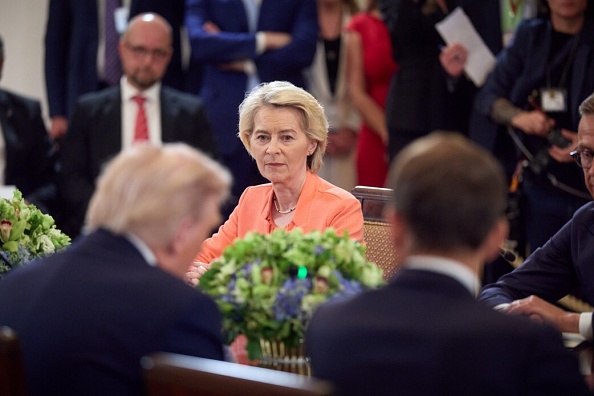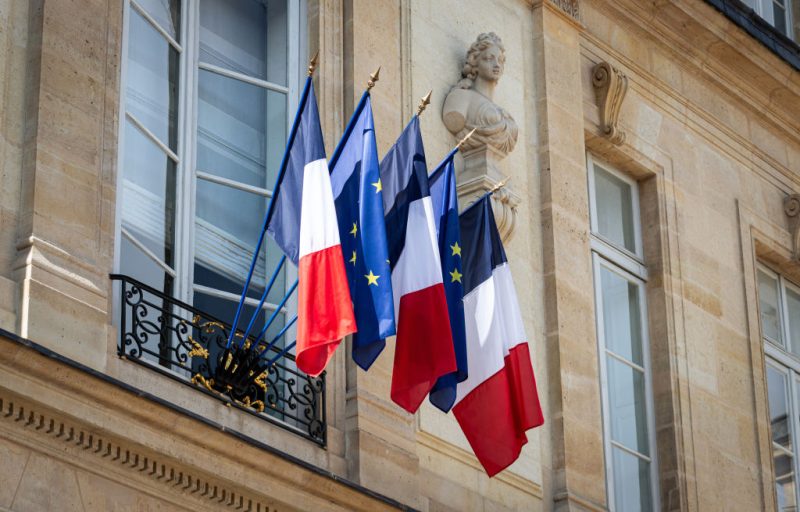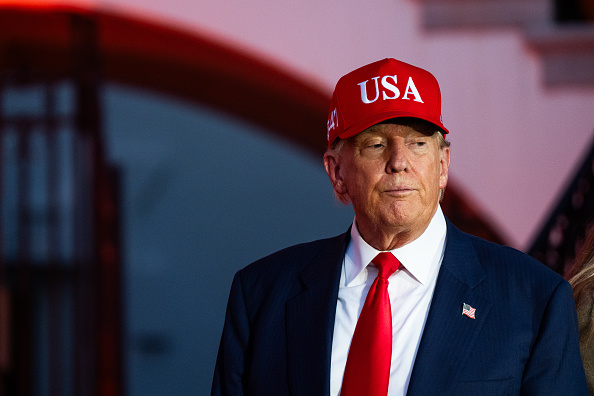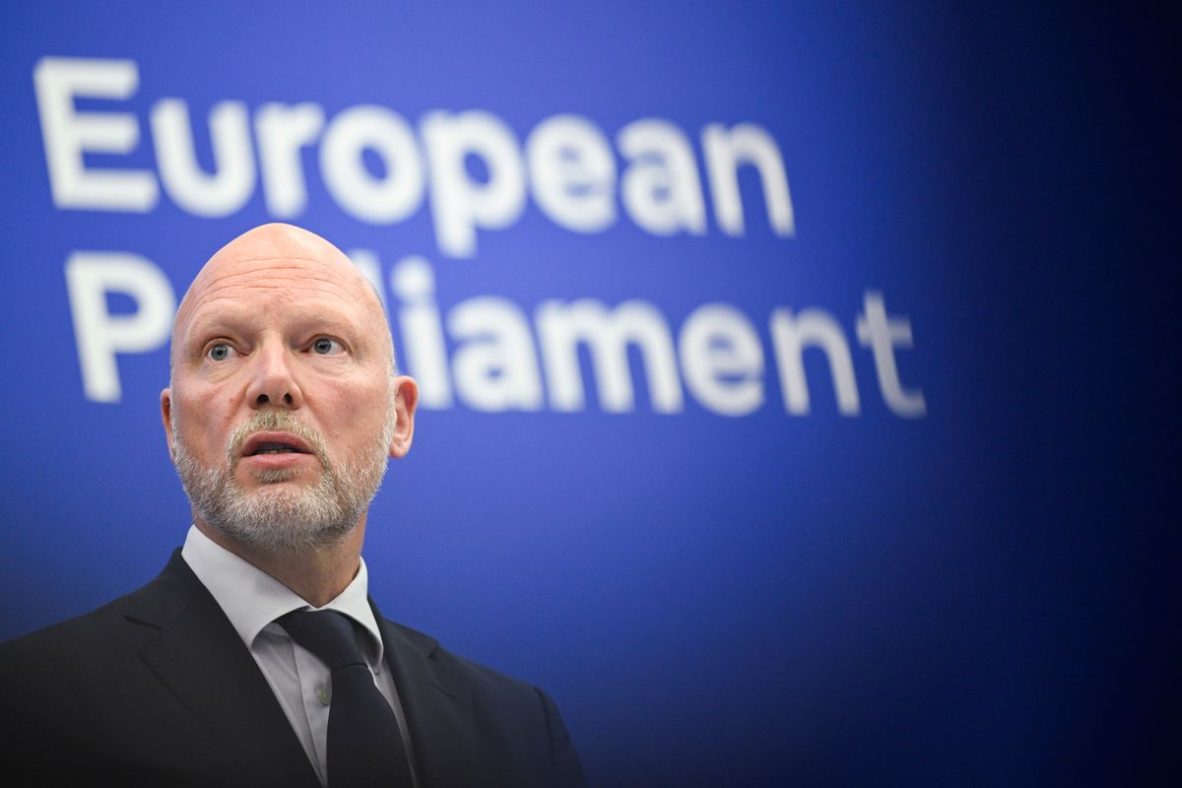Commission risks blunting 'Democracy Shield' amid US sensitivities and big tech backlash
Critics warn that concern about upsetting the US has further softened a Commission plan to tackle disinformation

The European Commission’s long-awaited European Democracy Shield was billed as the bloc’s bold new defence against disinformation and democratic backsliding – and a key aspect of President Ursula von der Leyen’s re-election campaign.
But after months of internal wrangling, and pressure from Washington and US tech giants, it looks set to be unveiled on 12 November with more of a thud than a bang.
Critics say the plan, seen in draft by Euractiv, is underwhelming because of fears that Washington might see it as a direct attack on free speech – as highlighted by a recent US House of Representatives hearing which took a swipe at the EU’s tech laws.
The draft is littered with assurances that every new measure will be taken in full respect of freedom of expression and softened language to appease US stakeholders, sources from the Parliament, the Commission, and an EU country told Euractiv.
Ken Godfrey, Executive Director of the European Partnership for Democracy, a civil society network that advocates for democratic values, said the upshot of US pressure is “less ambition” within the Berlaymont to tackle problems stemming from the online ecosystem.
The Commission initiative comes as foreign actors continue to target European elections – such as the recent votes in Romania and Moldova – through sweeping disinformation campaigns.
With limited collective defences in place, officials warn that a muted EU response risks leaving the bloc’s democratic space exposed.
“Time is running out, because our democracies are… under daily attack: manipulation of information, attacks on the integrity of electoral processes, cyberattacks, intimidation, infiltration, and sabotage have no other purpose than to try to divide and weaken us,” said Renew MEP Nathalie Loiseau, chair of the parliament’s special committee on democracy shield, in a letter sent with fellow party members to von der Leyen on November 10.
The centrist leaders – also including committee coordinator Helmut Brandstätter and Renew chief Valérie Hayer – have urged the Commission to enforce its tech regulations more thoroughly “as a first step in building a European Democracy Shield”. “We cannot allow Trump to blackmail us into betraying our values and disregarding our regulations,” they wrote.
Hands tied
Von der Leyen had pledged to counter foreign interference during her re-election campaign, but her own executive faces limitations as it can only issue a non-binding “communication”.
The responsibility for fighting interference largely lies with EU countries themselves. But their respective national services – such as France’s Viginum and Sweden’s Psychological Defence Agency – hold differing views on what disinformation is and how it can best be tackled.
There is also the complex case of Hungary, an EU country whose Prime Minister – Viktor Orbàn – shares Trump’s suspicion of moves to combat disinformation.
France wants deadlines for Commission’s DSA investigations on Big Tech
France is asking the Commission to set deadlines for completing its Digital Services Act (DSA)…
2 minutes

The Commission’s draft plan for the Democracy Shield includes the idea of a centre to combat disinformation that’s carefully branded as the “European Centre for Democratic Resilience” – an EU-level hub which could potentially help coordinate the work of national bodies but, per the plan so far, would rely on voluntary participation and no budget.
Many of the Shield’s other “new” actions are repackaged existing efforts, such as provisions under the Digital Services Act and the AI Act, or a €5 million EU-level fact-checking scheme.
Even with non-binding proposals, the draft’s language reflects the Commission’s caution, two officials from the institution said. One told Euractiv that the cabinet of the Commission President revised the text, which was “softened so as not to upset the US in general”.
But a Commission official suggested that even though the language was crafted to avoid US backlash, the substance – and the ambition – remain unchanged. A spokesperson for von der Leyen and the Commission declined to comment on claims that the proposal has been softened.
Taming the platforms’ algorithms
If the Commission wants to show teeth, the plan should tackle algorithms that fuel disinformation, critics say.
Green MEP Alexandra Geese, another Democracy Shield committee member, said it should address the regulation of social media algorithms more bluntly – arguing that “platforms transform falsehoods into perceived truths with every click and share”. As it stands, the Commission initiative risks being “a historic missed opportunity”, she added.
A French official involved in the EU’s disinformation efforts also warned of the need to tackle “the root cause: the social media algorithms that use psychological microtargeting to drive engagement”. The response, so far, is “too narrow – focused on detecting and reacting to attacks rather than preventing them,” they suggested.
A shield of paper
But Brussels’ digital rulebook continues to face intense pressure from US tech companies.
Tech giant Apple has asked the Commission to scrap its landmark Digital Markets Act, while Meta, which owns Instagram, Facebook, and WhatsApp, has protested against the bloc’s new transparency rules by halting political ads across the EU.
US platforms have found an ally in US President Donald Trump, who has heavily criticised the EU – claiming its digital rules promote censorship and unfairly target US firms.
As Washington pushes an anti-censorship narrative and the Commission responds by internalising the need for caution – even as it shapes voluntary tools for countering disinformation – critics say the result risks being an EU Democracy Shield made of paper.
Euractiv’s Magnus Lund Nielsen contributed reporting
(vib, nl)









